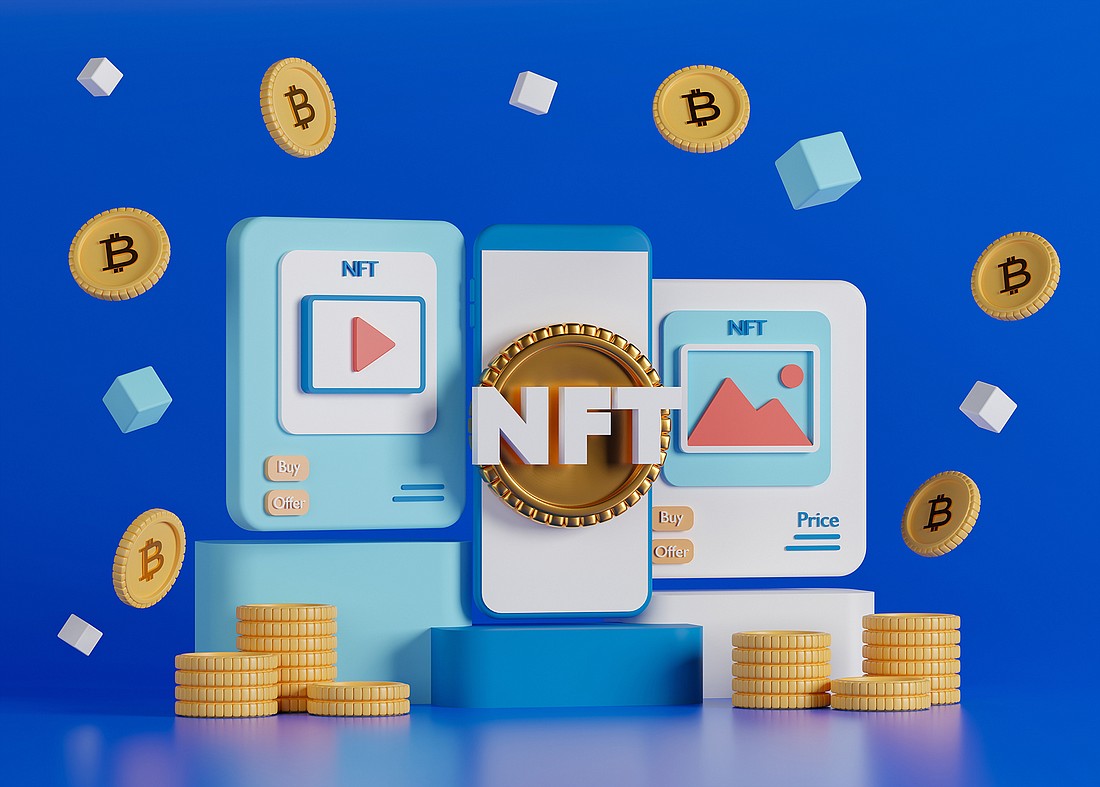
By Matt Borello • JBA Young Lawyers Section
If you’re thinking to yourself, “I have no idea what an NFT is,” you aren’t the only one.
The rise of cryptocurrencies, the use of blockchain, and now NFTs, are complex technological developments that leave a lot of questions to be answered.
NFT stands for “non-fungible token.” NFTs are a non-interchangeable unit of data stored on a blockchain which quickly have become an emerging asset class with trading volume reaching nearly $41 billion in 2021.
The purpose of NFTs being stored on blockchains is that a blockchain serves as a public record that allows individuals and entities to prove the ownership and authenticity of a variety of unique assets.
In a simplistic example, think of NFTs as allowing you to purchase a piece of digital artwork with a completely public ledger detailing that artwork’s transactional history and ownership from its inception to the present date.
If Leonardo da Vinci were to have been able to make the Mona Lisa an NFT, we would have a detailed history of its life from its creation and transfer to King Francois, to when it was stolen including who stole it (or at least the digital footprint of the thief), all the way to its present resting place in the Louvre Museum in Paris.
While you could take a screenshot of an NFT, much like you could create a print of the Mona Lisa, the public ledger aspect of NFTs allows you to know with certainty the authenticity of each NFT and makes them essentially forgery-proof.
Digital artwork is just one of the many potential use cases for NFTs. NFTs could be used to serve as a public receipt for the transfer of virtually any real or personal property.
Earlier this year, a home was sold for roughly $650,000 as an NFT. The home was owned through a limited liability company, which LLC then was transferred over as an NFT and made available for purchase. By purchasing the NFT, the buyer purchased the LLC and thus was able to buy the home. Interestingly, this buyer was able to maintain anonymity in purchasing the home, going by the screenname “A.J.,” but while also maintaining a public transactional history of the purchase.
Despite their utility, NFTs have created a host of legal problems that may be amplified by a lack of regulatory framework to address many of the problems that are beginning to occur or may soon occur.
Within this regulatory context, there is still much debate as to whether NFTs are going to be considered a “commodity” under the Commodity Exchange Act, which contains a catchall definition for “all other goods and articles.”
The Commodity Futures Trading Commission recently stated that cryptocurrencies (such as bitcoin and ethereum) fall under the definition of “commodities,” and NFTs share many similarities with cryptocurrencies, including that both NFTs and cryptocurrencies are bought, sold and stored on blockchains.
It also is possible that NFTs may be considered “securities” under federal securities laws.
In the present environment, many individuals and entities are purchasing NFTs with the sole expectation of turning a profit.
Celebrities such as Eminem, Snoop Dog, Justin Bieber, Lindsey Lohan and Grimes have begun to cash in on NFTs by selling their own creations.
As one example, Grimes has reportedly earned $6 million through her sales of digital artwork.
While still in the early stages, NFTs already are beginning to impact the way business and the law are practiced.
As Frances Arnold once said, “give up the thought that you have control. You don’t. The best you can do is adapt, anticipate, be flexible, sense the environment and respond.”
We must accept that technology is changing the way we do things and do our best to adapt.
Matt Borello is a litigation attorney with Smith, Gambrell & Russell LLP, with a focus on complex commercial disputes.